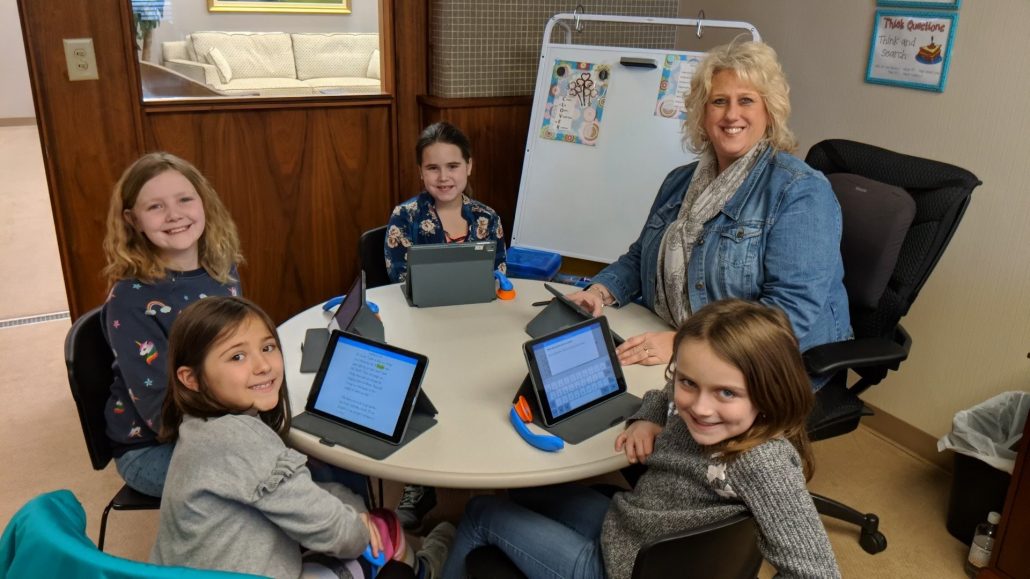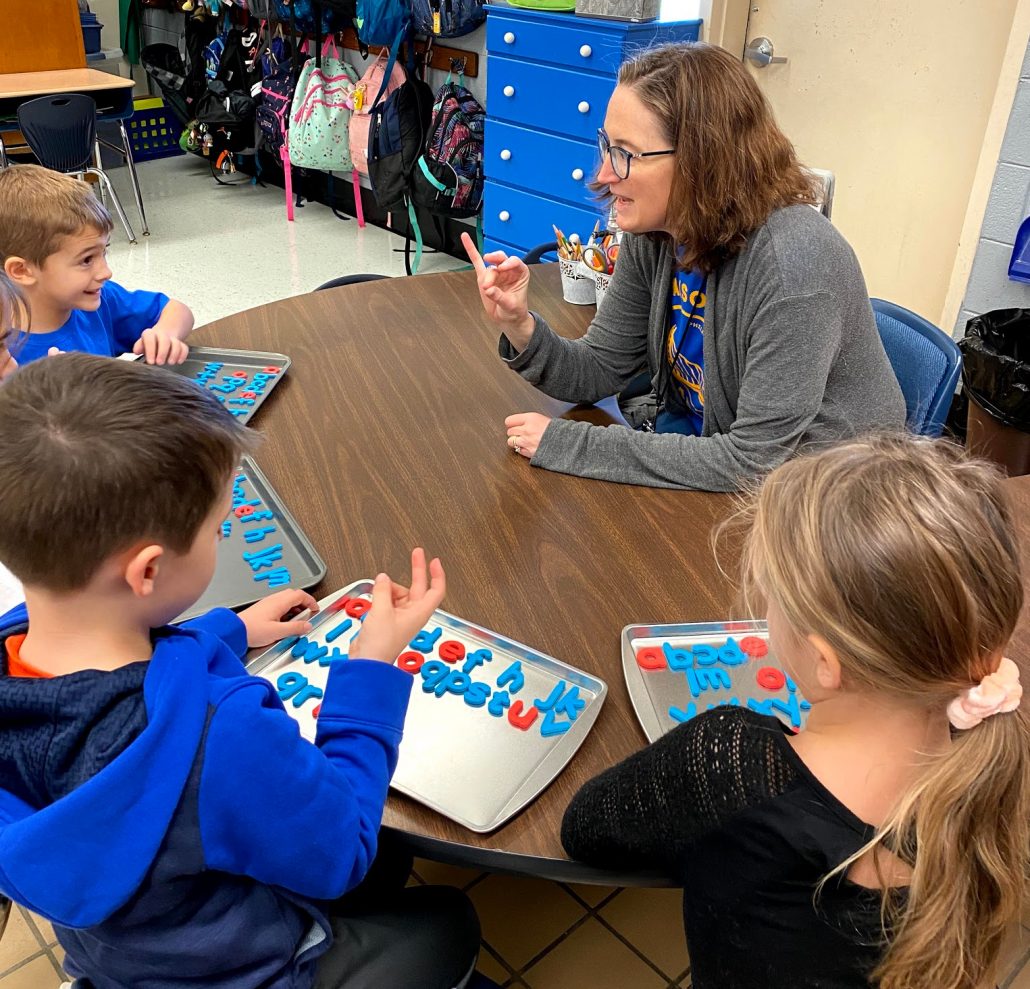“The Mebane Technology Challenge: 20 Years of Transforming Education in Davie County Schools”
By Jeanna Baxter White
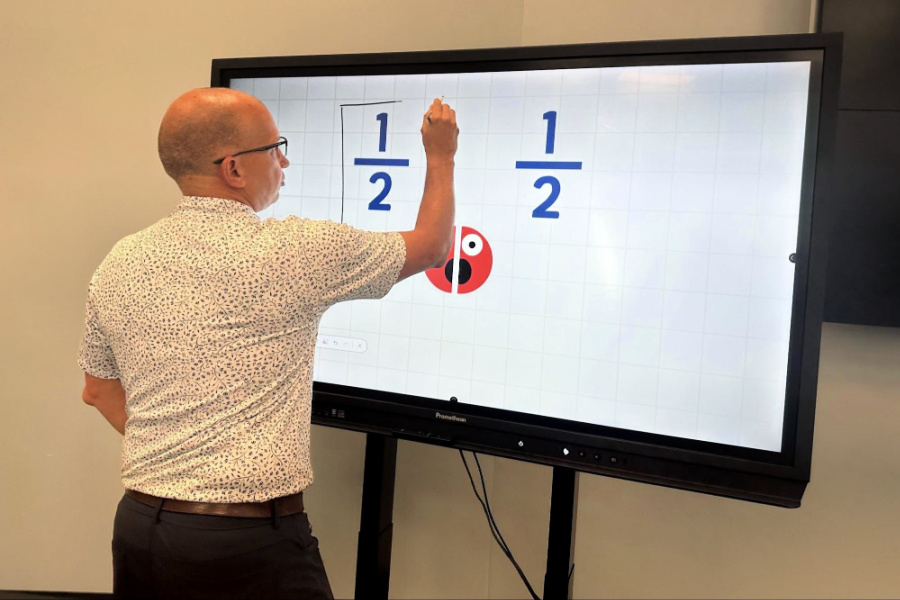
Launched in 2004, the Mebane Technology Challenge not only delivered cutting-edge technology to every classroom in Davie County Schools, but it also brought the community together to achieve a vitally important common goal – improving education for thousands of children throughout the county while at the same time ensuring the effort would be sustained through ongoing support. As we celebrate our 25th anniversary, we decided this pivotal initiative for both Davie County Schools and the Foundation deserved an update. We talked with Digital Teaching and Learning Specialist John Marshall to see how technology in Davie County Schools has evolved over the last 20 years.


Revolutionizing Education in 2004: A Community’s Bold Vision
In 2004, the Mebane Foundation issued a challenge: If the county could raise $1.5 million from individuals, companies, and civic groups, then the Foundation would contribute $750,000 over three years to add the best educational technology to classrooms in every school across the county.
By the fall of 2007, without any government/taxpayer funding, the community had raised more than $1.5 million, and the Mebane Foundation had completed its match. Those funds provided SMART Boards, projectors, and laptop computers for all but 80 of the school system’s 500 classrooms, plus pre-K classrooms in five of the six elementary schools.
Seeing the excitement among students and teachers as well as the enhanced educational environments created by the technology, Davie County Commissioners voted unanimously to spend $1 million to pay for the remaining SMART Boards, six new audio-visual (distant learning) classrooms, a technology-rich professional-development hub for training teachers and the last of the six pre-K, technology-enhanced classrooms.
By then, technology was transforming education for students in every classroom in every school. Perhaps the most significant result of the across-the-board SMART Board infusion was the well-documented interactive learning that had taken root across Davie County – and the elimination of virtually all disciplinary problems in classrooms. The children were visually stimulated and engaged in learning as never before.
Another positive result was that teachers, many of whom had resisted integrating computers into their lessons, were becoming eager to learn more computer/SMART Board applications.

Technology in Davie County Schools Today
While technology is commonplace in classrooms today, Marshall pointed out that it was a novel concept back in 2004. Placing Smart Boards in every classroom across the district was groundbreaking, a vision brought to life by the forward-thinking Allen Mebane.
“We were one of the only districts in North Carolina, or maybe anywhere at that time, to have a Smart Board in every classroom. That was a huge step and the result of Allen Mebane’s vision.”
Fast forward to 2023, and technology is not only in the hands of Davie County teachers but also in the grasp of every student. The impact of remote learning during the COVID-19 pandemic has equipped all students from 6th to 12th grade with Chromebooks. Additionally, students in grades 2nd to 5th have access to Chromebook carts as needed, while kindergarten and first-grade classrooms have ten iPads each. Teachers, too, have been empowered with laptops, docking stations, and an additional monitor, enhancing their ability to work without exposing their screens to students.

Technology Evolution: From Smart Boards to Promethean Panels and Beyond
Davie County Schools (DCS) remains committed to staying at the forefront of technology. The original SMART Boards have evolved into Promethean Panels in pre-k through 8th-grade classrooms and Clear Touch Boards at the high school and early college levels. The new interactive touchscreen boards resemble a large television and no longer require an overhead projector or connected computer. Marshall likened them to a giant cell phone on the wall, equipped with the same advanced capabilities.
In addition to the ability to write directly on the board, teachers and students can project images from a laptop, tablet, or external camera. “This newer technology gives teachers the freedom to walk around their classrooms to help students while simultaneously using a tablet or other device to teach a lesson on the board. Students can also project their Chromebook screens onto the board. Students can also project their Chromebook screens directly onto the board, eliminating the need for the teacher to share and display content on their behalf.”
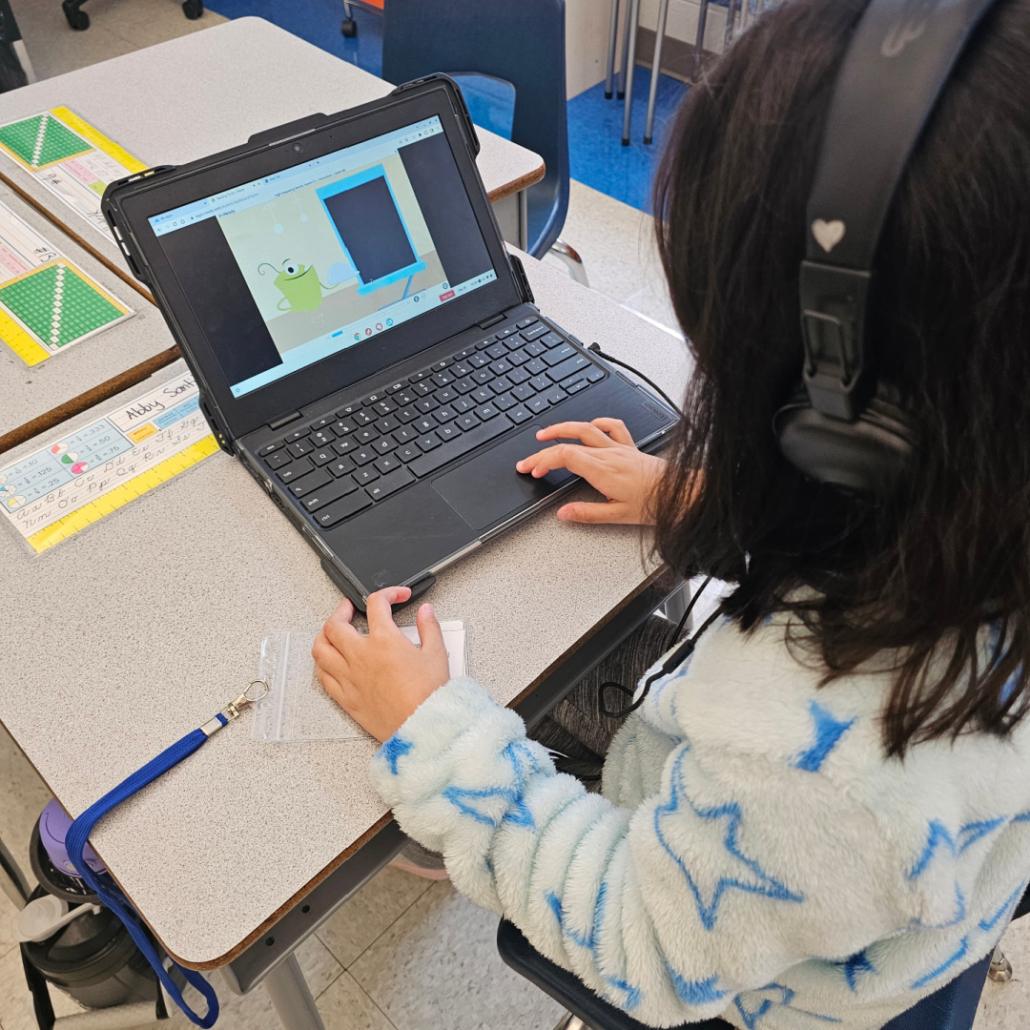


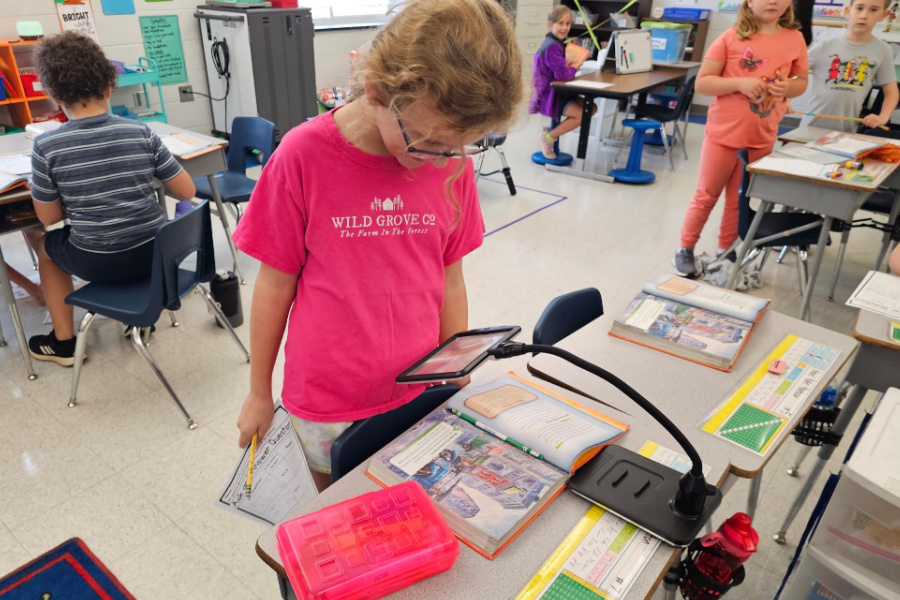
Empowering Teachers and Students in the Digital Age
“While the teacher is still the most essential factor in a student’s educational success, technology is a powerful tool in a teacher’s arsenal. I remember when we used to talk about wishing we could clone ourselves. Now, thanks to video technology, teachers can make a video with instructions that one group of students can watch to get started on a project while they work with another group.”
Davie County’s Virtual School operates predominantly through technology, with virtual school teachers equipped with the necessary tools to engage with their students online. Even post-pandemic, DCS continues to harness the potential of Canvas, a comprehensive course management system. Canvas facilitates online learning and teaching by enabling teachers to post information, assignments, and grades online. This platform, currently utilized in grades 6-12, ensures a seamless transition to remote learning if required. Marshall proudly cites a recent instance when Davie High’s air conditioning malfunctioned, but students faced no instructional disruptions, as all teachers had their course materials accessible via Canvas.
In recent years, the media centers have also received technology upgrades thanks to grant funding.

Looking Ahead with Pride
Marshall takes pride in Davie County Schools’ journey from its pioneering days to the present. He credits Butch Rooney, DCS Chief Technology Officer, and all those involved in the Mebane Challenge for laying the foundation of their technological success. “I don’t think we’d have the vision of where we are now without the lessons learned from the Mebane Technology Challenge. We learned a lot through that process. One of my favorite quotes is, ‘You never lose. You either win or learn.’”
As DCS continues to push boundaries and provide students with the best personalized educational experiences, the lessons learned from their technological evolution remain invaluable.
Having technology – and enthusiasm for it – in all classrooms laid the foundation for the innovative professional development models to come through Foundation initiatives: Mebane Masters and STEM Infusion. We will explore these initiatives in future articles.





